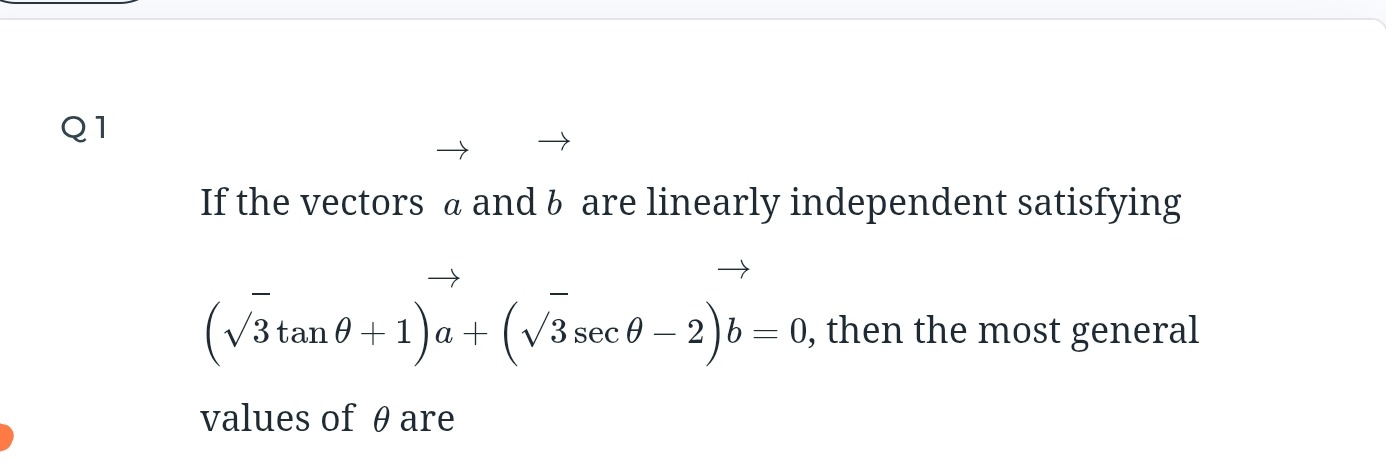Question
Question: If the vectors $\overrightarrow{a}$ and $\overrightarrow{b}$ are linearly independent satisfying $(\...
If the vectors a and b are linearly independent satisfying (3tanθ+1)a+(3secθ−2)b=0, then the most general values of θ are

A
θ=nπ−6π, where n∈Z
B
θ=2nπ±6π, where n∈Z
C
θ=2nπ−6π, where n∈Z
D
θ=nπ+6π, where n∈Z
Answer
θ=2nπ−6π, where n∈Z
Explanation
Solution
- For linearly independent vectors a and b, if c1a+c2b=0, then c1=0 and c2=0.
- This leads to solving two equations:
- 3tanθ+1=0⟹tanθ=−31
- 3secθ−2=0⟹secθ=32⟹cosθ=23
- The general solution for tanθ=−31 is θ=nπ−6π, where n∈Z.
- The general solution for cosθ=23 is θ=2mπ±6π, where m∈Z.
- To satisfy both conditions, we need to find the intersection of these solution sets.
- If θ=2mπ+6π, then nπ−6π=2mπ+6π⟹(n−2m)π=3π⟹n−2m=31, which has no integer solutions for n,m.
- If θ=2mπ−6π, then nπ−6π=2mπ−6π⟹nπ=2mπ⟹n=2m. This means n must be an even integer.
- Therefore, the common solution is of the form θ=2kπ−6π, where k∈Z.
